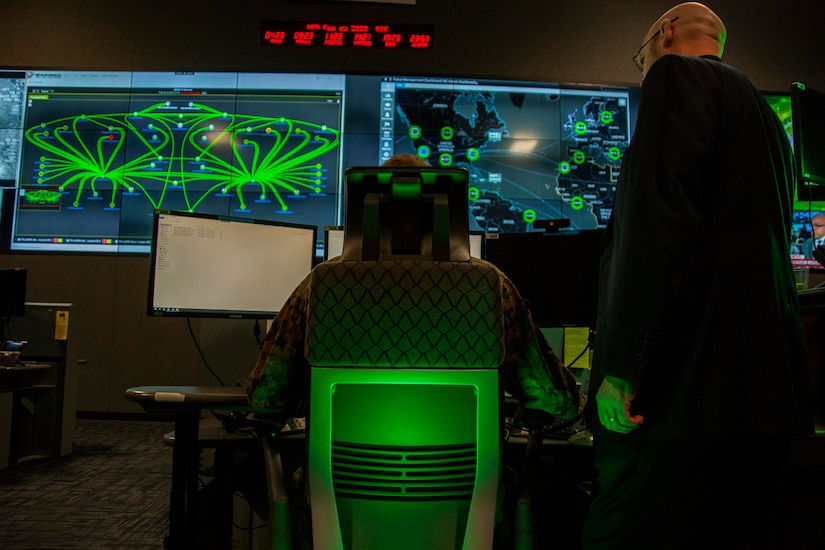Jan. 21, 2021 | , DOD News
Artificial intelligence is one of the Defense Department's top technology modernization priorities.
Because AI enables autonomy, decision making and system execution at incredibly fast speeds, department officials felt strongly that ethical considerations should go into its design and employment, Alka Patel, head of artificial intelligence ethics policy at the Joint Artificial Intelligence Center, said today at the Defense One Genius Machines 2021 virtual summit.

These ethical principles build on the department's long history of ethical adoption of new technologies and rules of engagement and warfare, she added.
The Defense Innovation Board spent months developing the principles and consulted with leading AI and technical experts, as well as current and former DOD leaders and the American public, she said.
Those principles state:
- DOD personnel will exercise appropriate levels of judgment and care while remaining responsible for the development, deployment and use of AI capabilities.
- The department will take deliberate steps to minimize unintended bias in AI capabilities.
- The department's AI capabilities will be developed and deployed such that relevant personnel possess an appropriate understanding of the technology, development processes and operational methods, including transparent and auditable methodologies, data sources and design procedures and documentation.
- The department's AI capabilities will have explicit, well-defined uses, and the safety, security and effectiveness of such capabilities will be subject to testing and assurance within those defined uses across their life cycles.
- The department will design and engineer AI capabilities: (1) to fulfill their intended functions while possessing the ability to detect and avoid unintended consequences, and (2) to disengage or deactivate deployed systems that demonstrate unintended behavior.
Now that the principles have been established, the department is going about operationalizing them to AI applications across the services, she said, adding that it's a tall but necessary order. Training and education of ethical AI practices across the department also goes hand-in-hand with that.

Another important part of AI ethics is sharing the conversation with allies and partners, so that everyone is on the same page when it comes to how ethics comes to play in interoperability, she said.
Sharing the conversation with corporations that are helping the department in its AI efforts is also important, Patel said. Companies and their employees need assurance that what they are helping to build will be used in an ethically responsible manner and, in turn, that they need to build it to ethical standards.






No comments:
Post a Comment